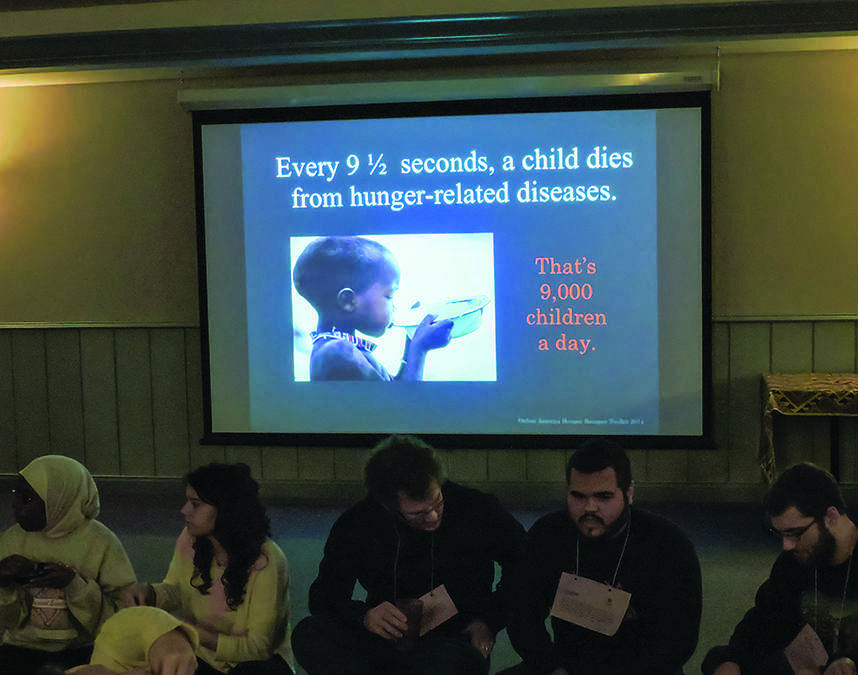Rebekah Smith
In 2013, 45.3 million Americans lived in poverty and 49.1 million lived in food insecure households.
In order to raise awareness of food insecurity in the United States and around the world, the Illinois Wesleyan University Development Studies Team, International Studies Program and Amnesty International sponsored the IWU Hunger Banquet on Nov. 7.
Proceeds from the event were donated to the Midwest Food Bank in Bloomington to help those in need. The donations from the event will provide more than 2,000 meals for local families. The first Hunger Banquet was held at Illinois Wesleyan in 2003.
At the banquet, participants were given a card with a name and a story of a person. They were divided into three groups of low, middle and high-income, and were served a meal based on the income indicated by their card.
Sophomore Emily Jehle was a part of the high-income group at the banquette. She said they “got a full meal which included a fish entree, salad and dessert while the low income only got rice with dirty water, and the middle class got rice and beans.”
“It was just really eye-opening that the ‘high class’ table was eating a regular Sodexo meal. We don’t think about the fact that we are lucky to be given what we are. It was really hard to be at the high table when you see many of your peers sitting below you.” Jehle said. “It’s extremely hard to eat the food when you are literally in the same room and place as people who aren’t getting anywhere near the proper amount of nutrients.”
Taking part in this event showed IWU students how big of a difference these income gaps can have when it comes to providing a meal for a family.
“Being in the middle class during the hunger banquet meant that I could only eat a certain serving size of rice and beans, and while I looked around the room I saw people eating a full meal with dessert and other people eating just rice,” said sophomore Jill Bookman. “While I was thankful that I had something more than just rice, I also really wanted the full meal. The whole experience made me realize what we take advantage of as Americans.”
In addition to the meal, information about hunger, poverty and food insecurity was presented to increase knowledge of the purpose of the event.
“The various presentations from IWU professors and students, the activities and the overall setup of the banquet were well done and opened my eyes to the local and worldwide hunger struggle,” said sophomore Alyssa Berry. “Though we many think it is beyond our control, there are ways that we can help lower-income populations and those who need help putting food on the table, including those right here in Bloomington.”
At the end of the meal, the left over food was put into a bucket to show how much was not eaten. “It was really eye-opening to see how much food we as Americans waste each day,” said junior Molly Willeford.

